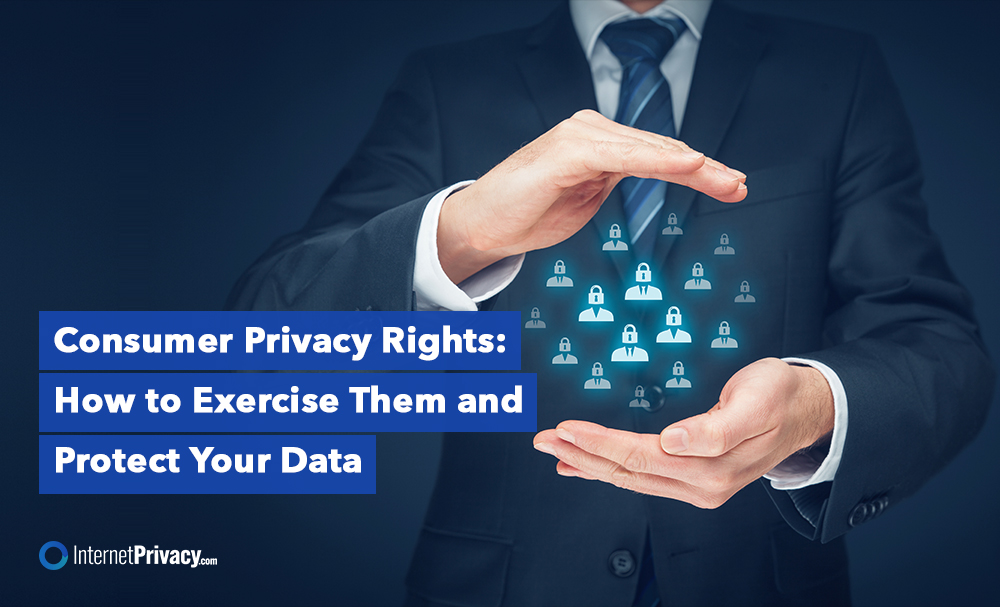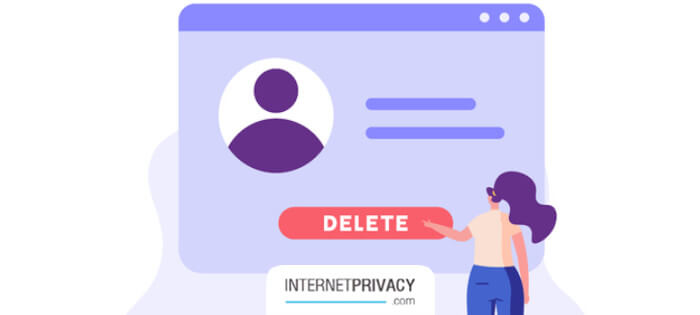Consumer Privacy Rights: How to Exercise Them and Protect Your Data

This article discusses the importance of understanding and protecting consumer privacy rights, highlighting the increase in data collection and online activity. It explains these rights, their significance, and methods to enforce them. Additionally, it covers common violations of consumer protection and provides tips on safeguarding your personal information, emphasizing the need to stay informed and protect your privacy online.
What Are Consumer Privacy Rights?
Consumer Privacy Rights encompass the legal entitlements and protections granted to individuals overusing and handling their personal information. These rights safeguard consumer data and ensure individuals control how their personally identifiable information is collected, stored, and utilized.
Consumer privacy is fundamental, with consumer data protection becoming increasingly vital in today’s interconnected world. Laws such as the California Consumer Privacy Act and GDPR in Europe are crucial in defining the boundaries of privacy rights. These regulations outline businesses’ obligations when handling consumer data, emphasizing transparency and accountability.
Comprehensive data privacy legislation grants individuals the right to access, rectify, and delete their personal information, empowering consumers to make informed choices about their data privacy. These regulations enhance consumer trust and confidence and serve as a mechanism to hold companies accountable for mishandling sensitive information.
Why Are Consumer Privacy Rights Important?
Consumer Privacy Rights are crucial to address concerns related to data protection, privacy violations, and the misuse of personal information collected by businesses and technology companies. These rights allow individuals to control their data and hold companies accountable for breaches or non-compliance.
In today’s interconnected world, where personal data is often shared for various services, it becomes imperative to safeguard sensitive information from unauthorized access. Consumer privacy rights ensure that individuals have a say in how their data is collected and used and play a vital role in building trust between consumers and businesses. Healthy data privacy laws and practices help foster a transparent and ethical relationship between companies and their customers by maintaining the integrity of personal information.
What Data Is Protected Under Consumer Privacy Rights?
Consumer Privacy Rights encompass a broad spectrum of protected data, including personal information such as names, addresses, financial details, medical records, online identifiers, and any data linked to an individual. California and European data protection laws outline specific categories of data that fall under these rights.
In California, the California Consumer Privacy Act (CCPA) focuses on protecting the personal information of consumers, their households, and devices. This legislation gives consumers the right to know what data is being collected about them, the right to request deletion of their data, and the right to opt out of having their data sold. On the other hand, the General Data Protection Regulation (GDPR) in Europe provides comprehensive protection for consumers’ personal information and data, including stricter regulations on obtaining consent and mandatory data breach notifications.
How Can You Exercise Your Consumer Privacy Rights?
Individuals can protect their consumer privacy by requesting access to their data, opting out of data collection, and filing complaints with regulatory bodies when necessary. Tools from companies like Google, such as Ad Settings, allow users to manage their privacy preferences and minimize sharing sensitive personal information. These actions enable individuals to control their data and safeguard their privacy.
1. Know Your Rights
Understanding your consumer privacy rights is crucial for controlling how companies handle your data and protecting your privacy. These rights empower you to control the collection, use, and disclosure of your personal information by businesses, ensuring you can decide what data is shared, with whom, and for what purpose.
Companies’ transparency about their data practices is critical. This enables you to hold them accountable and prevent data misuse.
2. Read Privacy Policies
Privacy policies are essential for understanding how companies handle your data, including their collection, use, and sharing practices.
These policies provide transparency, informing consumers about their rights and the extent to which businesses utilize data. Familiarizing oneself with these documents allows individuals to make informed decisions about their online interactions and safeguard against potential data misuse. Clear and concise privacy guidelines help companies comply with regulations and build trust and credibility with users, fostering a respectful relationship between businesses and consumers.
3. Opt-Out of Data Collection
Opting out of data collection is a crucial way for individuals to exercise their consumer privacy rights and limit the amount of personal information shared with businesses, thereby protecting their privacy. When consumers opt out, they take proactive steps to prevent their data from being used for targeted advertising or other purposes without their consent.
This action allows them to control the collection, storage, and potential sale of their data to third parties, asserting their rights and demanding transparency in how their information is utilized.
4. Request Access to Your Data
Requesting access to your data lets you see the information companies have on you, helping you verify its accuracy and understand how it’s used. This right enables consumers to review their data, check compliance with various privacy laws and regulations, and gain insight into the specific data points held by multiple companies.
By accessing this data, individuals can better understand how their online activities are tracked, their preferences and genetic data are analyzed, and how their information is shared.
5. Request Deletion of Your Data
Requesting the deletion of your data allows you to have your personal information removed from company databases, promoting data minimization and enhancing privacy. To submit a deletion request, you typically contact the company through a designated portal, email, or hotline, specifying the data you want removed and providing identification to confirm your identity.
Companies are legally required to respond within a set timeframe, as dictated by data protection regulations. Data Protection Officers (DPOs) oversee these requests, ensuring they comply with laws and act as points of contact for individuals exercising their privacy rights, guiding them through the process and ensuring legal compliance.
6. File a Complaint
Filing a complaint allows individuals to report violations of their consumer privacy rights to appropriate authorities, like the Federal Trade Commission (FTC) in the United States.
This action will enable consumers to seek redress for privacy infringements and hold companies accountable for failing to comply with data protection regulations.
To file a complaint, individuals should collect evidence, such as screenshots or relevant communications demonstrating the privacy breach. It is crucial to identify the proper regulatory body for data protection.
A detailed complaint with all necessary information is essential to initiate an investigation and potential action against the violating entity.
What Are the Common Violations of Consumer Privacy Rights?
Common violations of consumer privacy rights include data breaches, misuse of personal information, and a lack of transparency in how data is handled. These violations can compromise privacy, lead to data leaks, and diminish trust between consumers, government agencies, and businesses.
Data breaches involving unauthorized access to sensitive information pose significant threats to individual privacy, potentially leading to identity theft, financial fraud, and other exploitations. To safeguard against these risks, consumers must be cautious about sharing sensitive information with online services and entrust their data to reputable and secure platforms prioritizing data security.
1. Data Breaches
Data breaches, where unauthorized parties access sensitive consumer data, pose a significant threat to consumer privacy and require immediate action from Data Protection Officers (DPOs) and regulatory bodies. DPOs are vital in managing these incidents, assessing the breach’s scope and impact on individuals, and initiating containment measures.
Data protection regulations mandate that organizations report breaches swiftly to authorities and affected individuals. Non-compliance can result in severe penalties and damage consumers’ trust in a company’s ability to protect their personal information.
2. Misuse of Personal Information
Misusing personal information includes unauthorized or unethical use of consumer data beyond the intended or disclosed purposes, violating consumer privacy rights, and breaching trust between individuals and companies. This can result in regulatory penalties or legal consequences. Misuse can manifest in various ways, such as selling or sharing data without consent, phishing scams, or inadequate security, leading to data breaches.
These practices infringe on privacy and expose individuals to identity theft and fraud. Consumers expect companies to handle their information responsibly, maintaining confidentiality and security. Thus, organizations must implement strong data protection measures and adhere to privacy regulations to mitigate risks and preserve consumer trust.
3. Lack of Transparency
A lack of transparency in data handling practices can erode consumer trust and compromise privacy rights. When companies do not disclose how they collect, use, and share personal information, individuals lack the essential information to make informed decisions about their data privacy. Transparency is crucial for ethical data practices and builds trust between businesses and consumers. It is a moral imperative and a legal requirement in many areas.
The California Privacy Rights Act (CPRA) addresses these shortcomings in transparency by mandating comprehensive disclosures and granting consumers rights to access and delete their data, enhancing consumer awareness and improving privacy protection.
How Can You Protect Your Data?
Protecting your data is crucial for safeguarding privacy and preventing unauthorized access. Individuals can significantly enhance their data protection by adopting proactive measures like using strong, complex passwords, enabling two-factor authentication, regularly updating software, and encrypting sensitive data. Effective password management and using a password manager to store and auto-fill credentials securely are vital. It’s also important to be cautious about sharing personal information and to practice data minimization to reduce the risks of identity theft.
Tools like Virtual Private Networks (VPNs) can encrypt online communications, providing anonymity and protection from cyber threats. Adjusting privacy settings on social media helps control data sharing. Regularly monitoring accounts for suspicious activity is essential for early detection of security breaches, ensuring that potential threats are addressed promptly. These comprehensive strategies are instrumental in maintaining strong data security and privacy.





